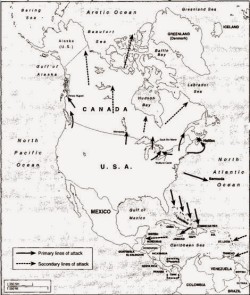Category Archives: Theater
I’ve been watching the Amazon Original TV show Bosch, which is based on Michael Connelly’s Harry Bosch book series. I will tack on some thoughts on the show at the end. But for now, I am reminded of something that Connelly did that sort of left me rolling my eyes. It’s something that multiple authors do. It is an understandable temptation for each book to have a sense of finality behind it. But if you’re writing a series of books with a single protagonist, it… doesn’t work so well, often as not.
At the end of one of the books, Harry Bosch leaves the LAPD. Done! Finished! Finito! Except… Connelly still has books to write. There’s only so much you can do with Bosch working freelance, or as a private investigator. Connelly actually said as much himself in and afterword on the later book when Bosch rejoined the force. Well, duh Connelly.
In another series (which I won’t name because it is spoilerish, but I will call S2), the sense of finality was the main character Finding Love at Last. The end result is that his wives kept having to die.
There is actually some crossing between the two of these. Bosch fell in love in one book and then out in the next a few times. And at the end of the first S2 book, the character Quit The Police Force to require peacefully at a shrimp hut. In the second book, he joined another force, which he quit by the end. Finality! He was back in the next book, and the author didn’t have him quit again after that.
There are actually more I can name, but you get the idea.
As far as I have read, Stephen Cannell has kept his Shane Scully character faithful to the Love Of This Life from the first book, and she hasn’t died yet. It can be done! It does require a fair amount of discipline, though.
Another series (S3) had the woman from the first book throughout until the second-to-last book, where she died, and her shadow hung over the last book. Very well done. Especially since it was sort of a Match Made In Hell. In the last book, when dealing with the rubble of the Love Of His Life that had been unfaithful to him twice in the last few books, literally said “{$%@ you, [wife]” at a point in which it was warranted. And he meant it.
The Jason Bourne series also did this right, at least when Robert Ludlum was writing it. That was only three books, though, but the Love Of His Life from the first book was there throughout, and they made it work. When Ludlum died, though, another writer took over. Killing her off was the first thing he did. He didn’t even bother killing her off. He just announced that she had died. (The same character died at the very beginning of the second movie.)
You can have characters quit, or fall in love. That’s no problem. But seriously, you have to have a plan for what to do next. There’s only so much dramatic finality you can have in a book that is part one of a series.
—-
Some thoughts on the Bosch TV series:
The TV show is okay, intersecting a couple of plots from a couple of books. Which is a good move, because those of us who have read the books get both familiarity and the uncertainty of not knowing how they are going to intersect.
Titus Welliver is an awkward age for the role. Being a Vietnam vet is a significant part of the Bosch character, but he’s too young to have served in that war (and the budget doesn’t support fitting it 20 years back when the books were written). Rewriting it to Afghanistan, which they did, doesn’t particularly work… but there’s also the fact that he’s too old for Afghanistan.
Apart from that, my only real complaint is minor: too much exposition. It’s like the writers felt the need to try to tell us everything about the character as quick as possible. I don’t think we need to know everything about him right away.
But I like that it’s a mystery over a season. Which something like Amazon (or Netflix) is perfect for, since all of the episodes are released at once. It’s my dream that someday there will be a Kindle County TV series, wherein each season will have a different court case or investigation (and a largely different cast). I thought of that before Netflix and company started making TV shows, but it’s actually perfect for it.
 For those of you who may recall, Captain Power was a TV show slash game back i the 80’s. Depending on who you asked, it either rocked or sucked. I can’t speak to how good the TV show was because I never saw it. I did have the game, however, along with a VHS cassette.
For those of you who may recall, Captain Power was a TV show slash game back i the 80’s. Depending on who you asked, it either rocked or sucked. I can’t speak to how good the TV show was because I never saw it. I did have the game, however, along with a VHS cassette.
The game primarily consisted of pointing at a screen and trying to hit bright red parts of the opposing fighter planes. There was also yellow, and if you didn’t “dodge” it by turning your plane-gun away, you’d get hit. Get hit enough times, and the plane ejects.
I didn’t know what to expect when I asked for it, but I should have expected what I got even if I was young. Of course you wouldn’t be able to maneuver. it was a VHS tape! and whether you were doing anything or not, the game would go on and (on the VHS anyway) you would win. Your participation wasn’t actually necessary.
 I have a bit of a flashback with that when Lain watches Dora the Explorer. I give myself two episodes of “Dora time” a day, where she watches the show while I get various things done in absolute piece.
I have a bit of a flashback with that when Lain watches Dora the Explorer. I give myself two episodes of “Dora time” a day, where she watches the show while I get various things done in absolute piece.
For those unfamiliar, the formula for Dora episodes is that Dora and Boots have to go somewhere. They consult a map, avoid Swipey the Squirrel who wants to steal something, and so on. Dora is always asking “you” (the viewer) for help. It’s interactive as far as that goes. Lain participates sometimes. It’s pretty great.
At some point, though, Lain is going to figure out that her participation is not necessary. Dora will get where she wants to go with or without her help.
God help me, I liked Michael Bolton when I was younger. It didn’t last long, but… yeah. Anyway, my respect for Bolton increased greatly with his participation in this song:
When I grew up, there were three giants of network news: Dan Rather, Tom Brokaw, and Peter Jennings. Each had held their job for over twenty years. I took for granted each election that I would turn on the television, and there they would be. When they stepped down (well, Jennings died), it was a pretty big deal about who would replace them. Charles Gibson, Katie Couric, and Brian Williams.
Gibson retired in 2009, Couric left in 2011, and it looks like Brian Williams is out (even if it’s technically a suspension). Brian Williams always struck me as the most lightweight of the three, and I don’t understand how he got the job when Stone Phillips was available. But to me, only Gibson had the “it” that I thought the Big Three (and, for that matter, Ted Koppel) had. Diane Sawyer, who replaced Gibson and who is also now gone, also had it.
I haven’t seen Sawyer’s successor, or Couric’s, for that matter. With the proliferation of cable news, I suppose it just doesn’t matter as much as it used to.
I previously likened this to the big annual Disney release. When I was a kid, it was always a big event what movie Disney would do next. Then along came Pixar and and the proliferation of media, and Disney movies came and went and just didn’t matter so much.
And with the proliferation of news outlets, Brian Williams getting suspended for six months is eclipsed by the host of a comedy and new parody show leaving.
I don’t know if this says more about the evolving business of news, our current culture, or that at some point the nakedness of the emperor just became a bit more obvious.
The UAB football program, whose demise I talked about here, isn’t going as quietly into the night as UAB President Ray Watts and the University of Alabama Board of Trustees had hoped. Some, including Superdestroyer here but also some national commentators, wondered if the fall of the UAB football program wasn’t a harbinger of things to come for the have-nots of college football. What Ray Watts did, a lot of other university presidents are not going to be eager to follow. The media attention has largely turned negative, particularly in Alabama (where, a year ago, I would have thought that indifference would have reigned.
Though many assume (and is often the case) faculty is hostile to sports, Watts himself has received a no confidence vote from the faculty (as well as the student government):
During President Watts’ 22-month tenure, the resolution says, he has failed to apply principles of shared governance to selection of university administrative officers, disbanding of the athletic programs, changes in academic operations and changes in faculty benefits.
UAB FAR Frank Messina told the Faculty Senate in December that he was given no indication from Watts or a consulting group analyzing the university’s athletics department that those programs could be on the chopping block.
The other resolution was a statement in support of UAB Athletics. It calls for “a comprehensive analysis of UAB Athletics that is transparent and includes consideration of campus-wide impact for discontinuation of any athletic program.”
The basketball program gave an extension to their basketball coach, with an added stipulation to make sure he does not criticize the school. UAB has always had a stronger basketball program than a football one. The current coach hasn’t been particularly good in light of that, but he pulls in a half-million a year, which is good pay.
The former football coach, Bill Clark, has declined coaching opportunities, in part hopeful that UAB will reverse course on its decision. There are signs that it might, with the introduction of a “task force” to revisit the report on which Watts based his decision:
The numbers in the study have been called into question by several critics of the decision, with some saying it overestimated expenses and underestimated revenue and charitable support. UAB President Ray Watts announced the creation of the task force earlier this month.
In a statement, Smith said the group met Jan. 16 for about three hours. He said the task force discussed a number of issues, including a request for proposal to help determine the firm or firms that will conduct the report.
I actually read the report. It wasn’t hard, being something like sixteen pages. It quite obviously started with the conclusion and moved backwards. People are questioning the numbers, but it looks apparent to me that the preparers, CarrSports, gave the administration the numbers that they wanted to reach the desired conclusion. Last year they prepared a report for James Madison University, which suggested that JMU should make the transition from FCS to FBS, also likely a case of telling administrators what they wanted to here. There is talk, actually, of JMU being UAB’s replacement in Conference USA.
Conference USA is having its winter meeting, where among other things they will determine UAB’s fate in the conference. No decision is expected, but it could weigh heavily on UAB’s decision. If UAB doesn’t have a spot in Conference USA waiting for them, it’ll be harder to justify rebooting their football program. The only potential home for them will be the Sun Belt, which has substantially lower payouts. That’s if they can get an invitation. On the one hand, they’d be a great get for the Belt. On the other hand, they have two teams in Alabama already.
 This post includes spoilers of Harry Turtledove’s Southern Victory series, up to the Settling Accounts series. If you’re interested in reading the series, I don’t think that it will ruin the story for you. Turtledove’s storytelling doesn’t particularly lend itself to surprise endings.
This post includes spoilers of Harry Turtledove’s Southern Victory series, up to the Settling Accounts series. If you’re interested in reading the series, I don’t think that it will ruin the story for you. Turtledove’s storytelling doesn’t particularly lend itself to surprise endings.
Vox presents thirteen maps of things that never happened. The one to the left is the first one, which involves plans to invade Canada.
We, of course, have very little reason to ever invade Canada. Our only route to incorporation is this one, and at this juncture they’re probably more likely to take from us than we are from them.
—
Turtledove’s WWI alliances[/caption]I’ve been working my way through Harry Turtledove’s work. Right now I am audioreading his “Atlantis” series (wherein the eastern part of the US broke off from North America to become an island continent). Prior to that, it was his “Southern Victory” series, wherein the south won the Civil War. The books track the alternate timeline from the 1880’s to World War I and now* the world embarks on World War II (except that Hitler’s got a drawl). The biggest departure is history, apart from a dramatically weaker United States, is that it changed the course of history in World War I. In short, the United States and Germany emerged victorious over the CSA, Britain, and France.With Canada being a part of the UK, of course, they were also among the losers. The biggest losers, in that by the end Canada ceased to exist. With the exception of Quebec**, it was incorporated into the United States. Portions of the Confederacy (including but not limited to what we call West Texas, Oklahoma, and Kentucky) were also taken. Due to the political considerations***, Oklahoma (“Sequoia”), West Texas (“Houston”), and Kentucky (“Kentucky”) were granted statehood while the Canadian provinces were not. The novels follow three different Canadian storylines, from the perspective of an American in Ontario, from a Canadian insurgent in Manitoba, and a citizen of the freshly minted Republic of Quebec.
The lesson, on both the Confederate and Canadian fronts, is that occupation is hell. Not just for the occupied, but for the occupiers. And it’s really, really difficult to reconcile with a remotely liberal democracy.
I often wonder to myself how much better off, or worse off, most of Mexico would be if we’d never signed the Guadelupe Hidalgo treaty and marched on Mexico City, and how much better off the Philippines would be if we’d never left. Given the populations of both of those places, though, it would have been next to impossible to stay with a hostile population. We weren’t quite the liberal democracy – at least as far as Mexico is concerned – we were then that we are now (or at least theoretically strive to be), making the whole thing a non-starter. (Points to David Alexander for being the first person to really point this out to me.)
* – The series is complete. Unfortunately, the last four books were never recorded. So I’m having to read them, and I haven’t quite gotten to them yet.
** – It was rather a stroke of genius on Teddy Roosevelt’s part. The US was ill-equipped for a Francophone state. And negotiating an independent Quebec made an immediate ally in separating Canada. The confederacy probably would have been better equipped for incorporating Quebec, as it (ironically) had more of a multicultural streak and a system that could incorporate such. Not only did they have the primary Spanish-speaking states of Sonora, Chihuahua, and Cuba, but they had a comparatively benign policy towards Native Americans, leaving them to govern Sequoia (Oklahoma). They also would have been better positioned to avoid the conflicts with Utah if they had been so inclined, though the Confederacy evidently had a particular disdain for the Mormons.
*** – The two parties are the Democrats and the Socialists, with Republicans being little more than an afterthought. Teddy Roosevelt, a Democrat, knew that the Canadian provinces would likely vote Socialist. Further, there was more of an impetus to try to solidify their holdings on the former Confederate states to strengthen the hand of those who did not want to return to the Confederacy. Though solidifying the Americanness of the Canadians also may have been wise policy, it was less urgent because they had no nearby country to return to.
In the exciting (or so I hear) game between the Green Bay Packers and Seattle Seahawks, Aaron Rodgers through a pivotal interception on what he thought was a free play:
What does it say for the game even though you had two INTs: “The defense played great. Felt like we might have had an offsides on the first interception. Corey snapped it early — I figured it was a free play — and Davante’s was the only route that was going in the end zone. Sherm made a good play. The second one, just miscommunication between Cobb and I.”
Why think it was a free play?: “I saw the end jump; he must not have been in the zone.”
I can’t remember when, but there was a bowl game where a supposedly free play turned out to be costly when the flag was flown for something other than defensive off-sides and an interception occurred.
I remember several seasons back when Southern Tech was playing against the Atlantic State Panthers in a game that was going to determine the conference championship. ASU had thirteen players on the field, and so our quarterback thought he had a free play. For those that don’t know, a “free play” is when the defense commits a penalty and so if things turn out badly you can take the penalty and the yards, but if it goes well you can decline the penalty and take more yards. Free plays lead quarterbacks to just kind of throw the ball up there and if your guy catches it then great but if their guy catches it then no harm.
Which is all fine and good, if the flag is what you think it’s for. In the case of Sotech, it wasn’t. There wasn’t irrefutable evidence that the two State players had not gotten off the field (though it was pretty obvious). The Panthers intercepted the ball in the endzone. The entire tide of the game shifted, and we lost a game we were favored to win by a touchdown.
Ever since then I’ve taken note of when “free plays” backfire and it seems to happen quite a bit. Sometimes, as in this case with Rodgers, it works out. But I wonder what the ratio is between great plays and backfires. I wouldn’t be at all surprised if the latter outnumbered the former.
The Economist writes about the rise of the web comic:
In 2012 he is finally getting his way. As the newspaper industry continues its decline, the funnies pages have decoupled from print. Instead of working for huge syndicates, or for censored newspapers with touchy editors, cartoonists are now free to create whatever they want. Whether it is cutting satire about Chinese politics, or a simple joke about being a dog, everything can win an audience on the internet.
This burst of new life comes as cartoons seemed to be in terminal decline. Punch, once a fierce political satire magazine whose cartoons feature in almost every British history textbook, finally closed its doors in 2002. The edgier Viz magazine, which sold a million copies an issue in the early 1990s, now sells 65,000. In the United States, of the sprawling EC Comics stable, only Mad magazine remains, its circulation down from 2.1m in 1974 to 180,000. Meanwhile, the American newspaper industry, home of the cartoon strip, now makes less in advertising revenue than at any time since the 1950s.
 It tracks the rise and fall of the newspaper strip, to the rise of the web comic. It has all the trappings of an unconvincing web-bang-bam piece, but is actually a quite good article and makes a good case that the web truly does provide a better outlet for cartoonists rather than just acting as a farm system (as blogging often does).
It tracks the rise and fall of the newspaper strip, to the rise of the web comic. It has all the trappings of an unconvincing web-bang-bam piece, but is actually a quite good article and makes a good case that the web truly does provide a better outlet for cartoonists rather than just acting as a farm system (as blogging often does).
I don’t read any comics, web or otherwise, on a daily basis. The only one I’ve read thoroughly is Something Positive, and at times Real Life. which I will get to in a minute. I’ve heard a lot of good things about MegaTokyo, though it is (like the article says) hard to get into if you didn’t start… a long time ago. XKCD is iconic, of course, but I mostly go there only when someone links to it. It seems that most webcomics are either one-offs like XKCD, in which case I have a hard time getting really into them, or they’re involved like MegaTokyo or Something Positive, which require a lot of investment.
It’s kind of difficult to read the latter on a computer. They sell merchandise, but what I really want is an ebook or ecomic so that I can devote some time and sit down and read it conveniently. Even though they’re free online, I would actually pay – and possibly pay well – for the convenience of being able to read them on a Kindle or tablet. Because I’m bad about reading comics daily, I tend to read Something Positive in spurts. Years at a time. Often, actually, starting from the very beginning and getting up to the new stuff that I haven’t read. I’ve read about 10 years worth of SP, and have about three years left to read, but I’d easily pay $10/yr, or maybe even $20, for every year he’s got.
It’s not entirely unlike how some CD prices have fallen to the price of MP3s, but I’d spend a couple extra dollars on MP3s just to save myself the trouble of ripping the CDs.
Below is a video of Captain America in live movies throughout the years. It’s an interesting stand-in for the evolution of comic book movies more generally. I saw the ’94 movie when it came out. It’s almost the perfect encapsulation of the pre-Marvel movie revolution. Very by-the-numbers, not an ounce of inspiration.
I actually have a VHS movie from Turkey with “Captain America” in it, called 3 Adam Dev. Captain America teams up with a luchadore Mexican icon to take on a particularly evil Spiderman. Pieces of it here:
Here’s a mashup of 70’s Marvel heroes in a (non-existent) Avengers movie:
Lastly, if you have a couple hours to kill, here’s a full fan film for Spiderman. I haven’t watched it all the way through, but for what it is, the video quality is not terrible. (I usually have difficulty with amateur movies in large part because of worse film quality than this.) If it weren’t so long, I’d probably give it a shot and I’d still watch this before Id watch the FF movie below).
And if you have about 90 minutes to kill and do not value your time even slightly, here is a never-to-be-released Fantastic Four movie from 1994 created for no other reason than to retain copyrights:
It’s amazing how well-made a lot of consumer electronics have become. How good they’ve always been, for example.
Twenty years or so ago, we had a television. It was an okay television at the time, or at least for most of its life. No one expected high-falutin’ things called remote controls. Or, at least, our family didn’t. Dad got it in his mind, however, that he wanted one of those “big screen televisions.” They were coming as large as 50″! The problem was the existing television. It just kept soldiering on. And on and on and on. We kept waiting for it to die. And it just wouldn’t.
Finally, Mom decided it was just time to get a new one. So she did. The TV at the time got tossed back to the computer room. We didn’t need one there, but it was a perfectly fine television and it was not in the Truman family ethos to junk (or give away or sell for a paltry sum) a perfectly good television. No matter how much its continued functionality aggravated us.
This turned out to be a good thing, because the following summer we got the Foreign Exchange Student from hell. A guy who was seventeen and too immature for a twelve year old girl he was… interested in. We didn’t even know about the trolling-the-swimming-pool-for-girls-younger-than-twelve thing he was probably up to. We did know very quickly that we didn’t like being around him. We resisted this sentiment for as long as we could, because we were hosts, but one by one we started huddling more and more in the computer room, around the old television that (thank god!) wouldn’t die.
Some time later, my roommate Karl and I purchased a TV set for our apartment. It was good, but not great. When I moved to Deseret to be with my now-wife, it didn’t fit in the Escort. I ended up taking a TV bequeathed to me by my grandmother. It was very functional, but not only did it not have a remote, it didn’t have a dial. There were thirteen buttons on the front and you had to program them with a screwdriver. Not only was there no RCA cable imput, but there was no coaxial cable either (the solution there, too, involved a screwdriver). That lasted the duration in Deseret, but by the time we moved down to Estacado, I wanted something more durable, like the TV I purchased with Karl. If only grandmother’s TV would die.
My brother ended my dilemma by taking it off my hands. I secretly suspect he put it out on a farm where it could run and play with other TV sets. Whatever the case, I never saw it again. Don’t ask, don’t tell. So I got the Karl TV, which my brother brought on a road trip out when he visited for a college football game.
I still have the Karl TV (purchased in 2002), and it still works almost perfectly. This is very aggravating because I’m ready to go straight LCD. I’m actually wanting a new nice Samsung television and putting the Vizio downstairs. But most of my viewing is through a computer, and it’s hard to manage an old CRT television set through a VGA slot. I have an adapter, but it works imperfectly and it’s hard to read text on the screen. But disappointingly, it soldiers on very admirably. You can’t give away CRT’s these days. The dump wants $10 just to dispose of it. Which I will be glad to pay just as soon as it dies.
Please, TV… die.



